Three blocks of masses 5 kg, 3 kg and 2 kg are placed on a rough surface as shown in figure. Coefficient of friction between block and surface is same for all the blocks and is equal to μ=0.2 . A horizontal force of 15 N is applied on 5 kg block. The force exerted by 3 kg block on 2 kg block is : (g = 10 m/s2)

15 N
5 N
zero
None of these
The correct Answer is:C
Let friction between 5 kg and surface be f1, 3kg and surface be f2 , 2kg and surface be f3. Then
(f1)max=(0.2(50)=10N, (f2)max=(0.2)(30)=6N
(f3)max=(0.2)(20)=4N
(f1+f2) is sufficient to balance the external force. so normal between 3 kg and 2 kg is zero.
Similar Questions
A block of mass 10 kg is moving on a rough surface as shown in figure. The frictional force acting on block is :-
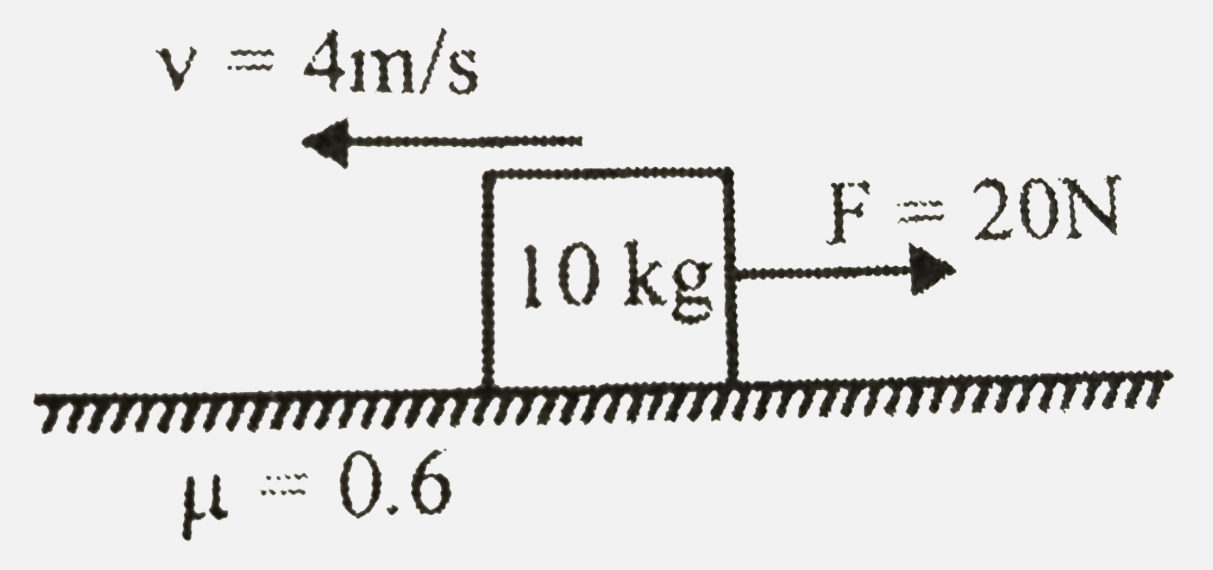
View SolutionThree blocks of masses 3kg,2kg and 1kg are placed side by side on a smooth surface as shown in figure. A horizontal force of 12N is applied on 3kg block. Find the net force on 2kg block.
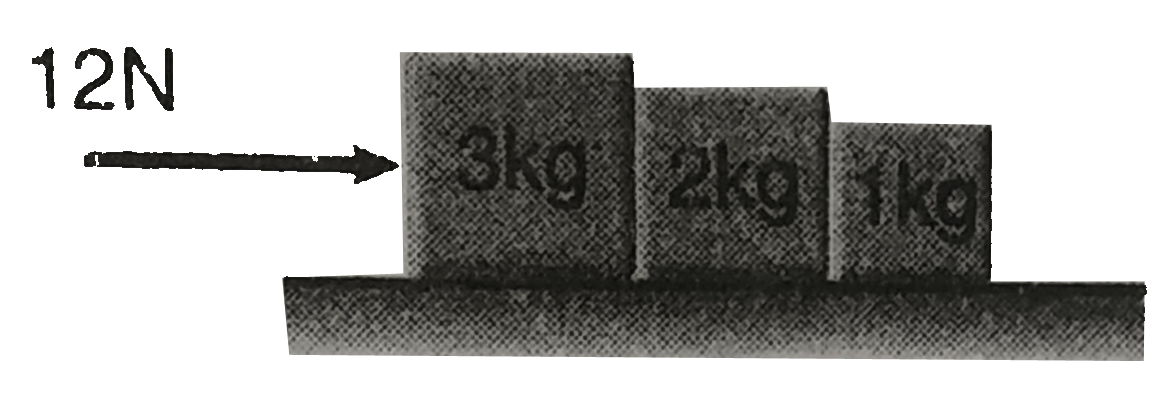
View Solution
Knowledge Check

Three blocks of masses 6 kg, 4 kg and 2 kg are pulled on a rough surface by applying a constant force 20 N. The values of coefficient of friction between blocks and suface are shown in figure.
Q. Friction force on 4 kg block isA4NB6NC12ND8N
Three blocks of masses 6 kg, 4 kg and 2 kg are pulled on a rough surface by applying a constant force 20 N. The values of coefficient of friction between blocks and suface are shown in figure.
Q. Friction force on 6 kg block isA12NB8NC6ND4NTwo blocks A and B of masses 10 kg and 15 kg are placed in contact with each other rest on a rough horizontal surface as shown in the figure. The coefficient of friction between the blocks and surface is 0.2. A horizontal force of 200 N is applied to block A. The acceleration of the system is (Take g=10ms−2)
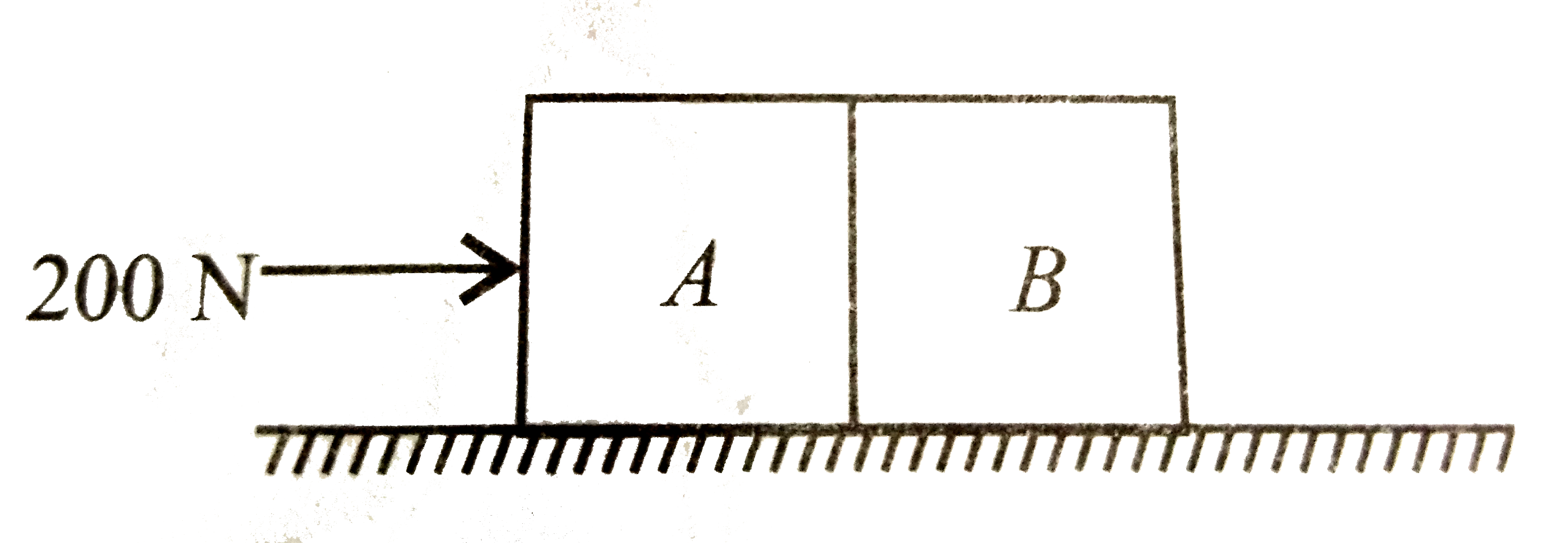 A4ms−2B6ms−2C8ms−2D10ms−2
A4ms−2B6ms−2C8ms−2D10ms−2
Two blocks of masses 4kg and 6kg are kept on a rough horizontal surface as shown. If the acceleration of 6kg block is 5n, then n is :
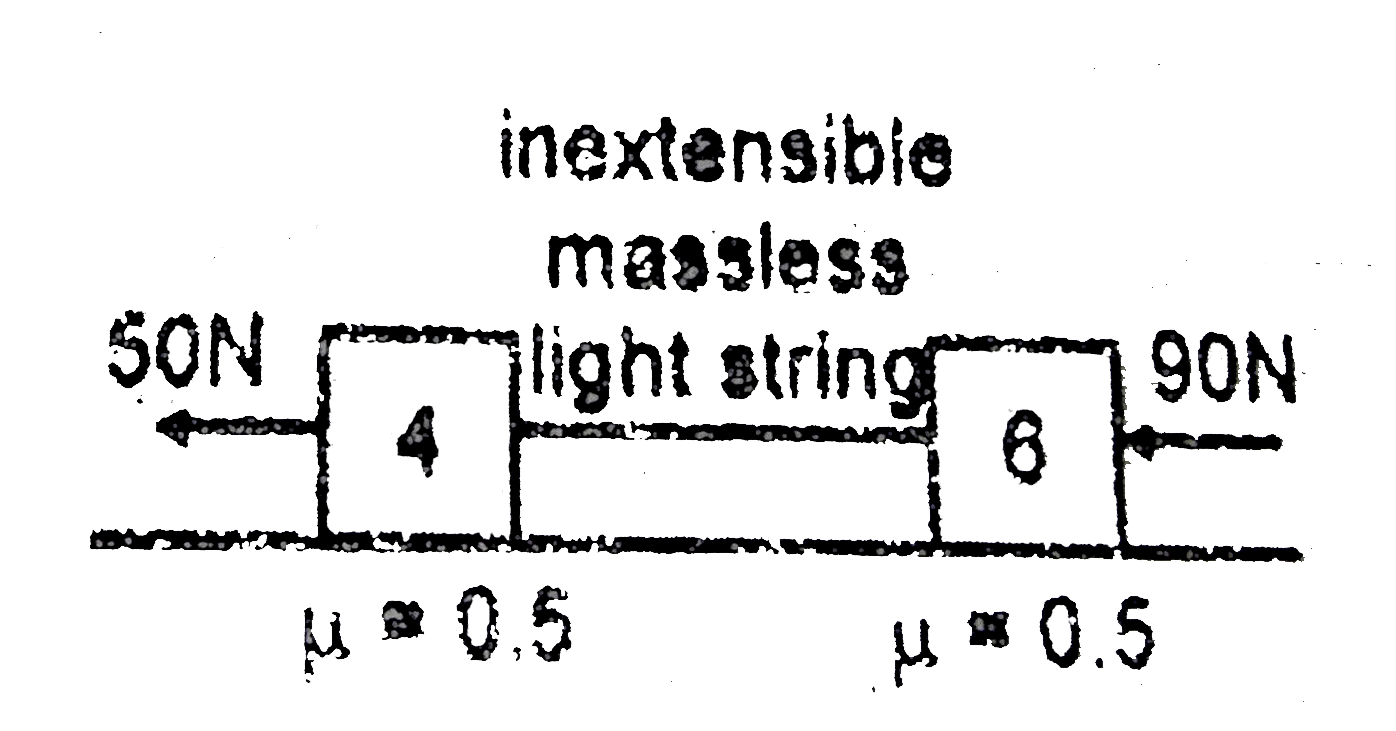
View SolutionFind the accelerations a1,a2,a3 of the three blocks shown in figure if a horizontal force of 10 N is applied on a. 2 kg block, b. 3 kg block, c. 7 kg block. Take g=10ms2.
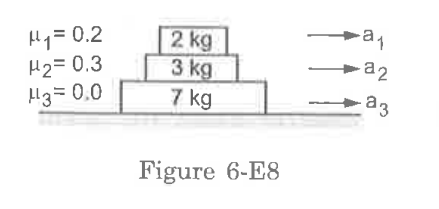
View SolutionConsider the arrangement shown in the figure. The coefficient of friction between the two blocks is 0.5 and between the 4 kg block and the horizontal surface is 0.4. If a horizontal force of 12 N is applied on the 4 kg block, the acceleration of the 2 kg block would be
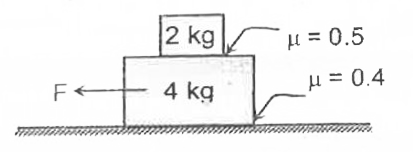
View SolutionA block of mass m=4kg is placed oner a rough inclined plane as shown in figure. The coefficient of friction between the block and the plane is μ=0.5 . A force F=10N is applied on the block at an angle of 30∘ .
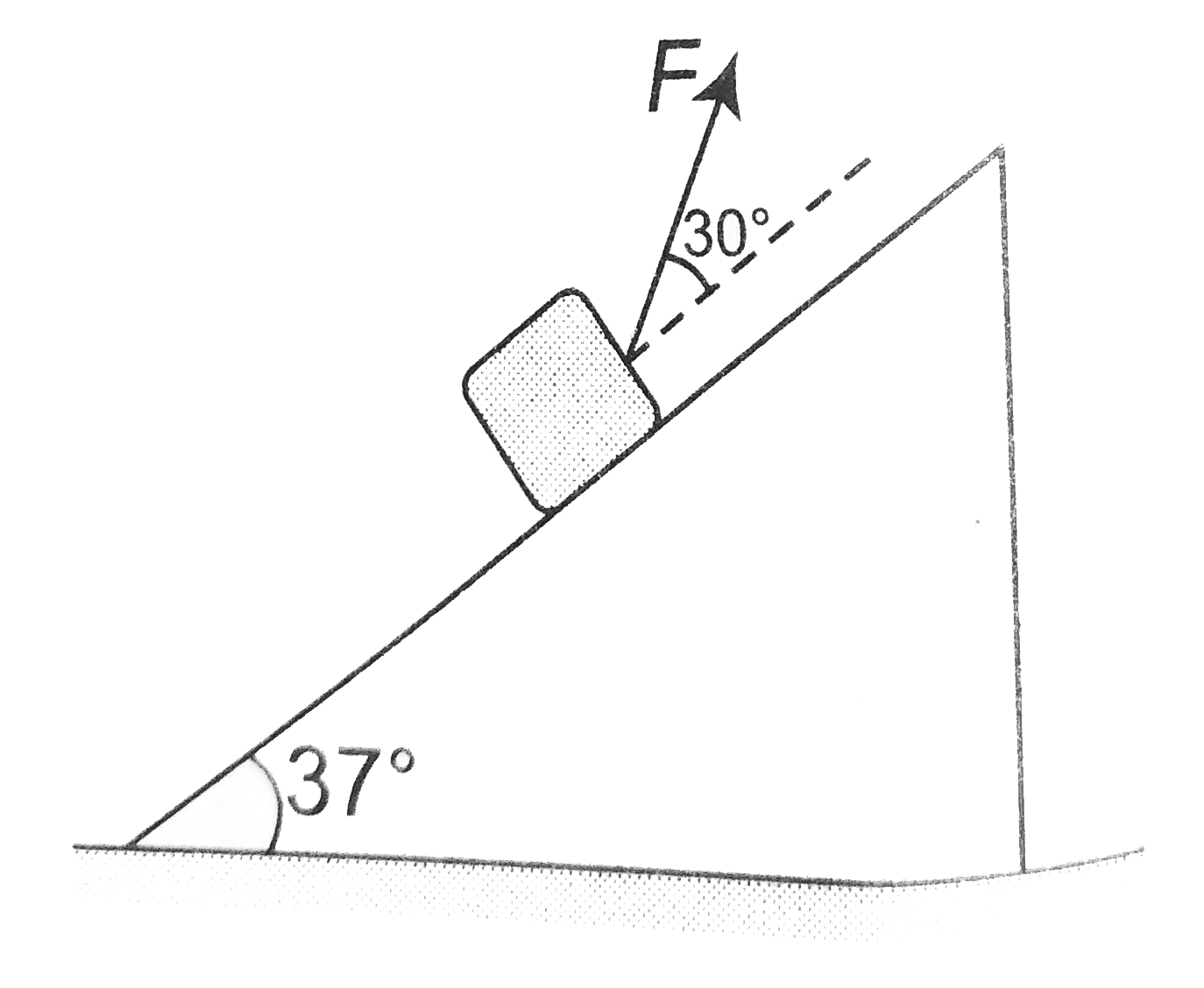
View SolutionIn the arrangement shown in figure coefficient of friction between 5kg block and incline plane is μ=0.5. Friction force acting on the 5kg block is
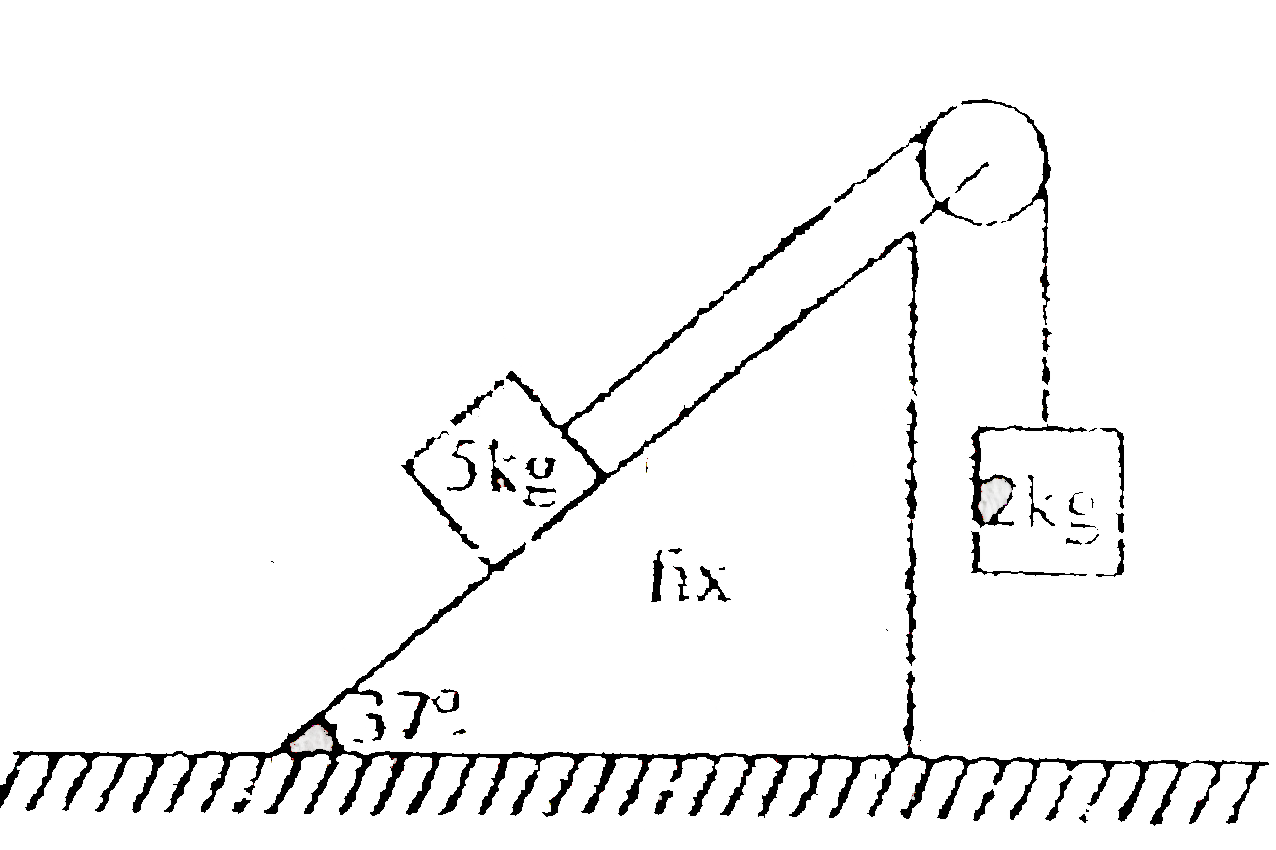
View Solution

